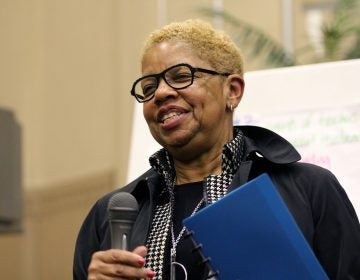Plans shelved for composting facility at the Schuylkill Center
This summer, the Schuylkill Center in Roxborough announced that it was going to house Philly Compost’s new facility, where it would transform food waste into “black gold.”
Grid magazine praised the partnership, noting that, “Not only does the Schuylkill Center have tremendous volunteer resources, it’s also home to Urban Girls Farm, creating a closed-resource-loop bonanza.”
BioCycle magazine followed suit, calling the Center an “ideal partner when Philly Compost was looking for a new home.” Construction was set to begin in July.
But now, less than a month before the project is scheduled to go before the Zoning Board of Adjustment, Philly Compost is shelving it. Lee Meinicke, president of Philly Compost, says she lacks the necessary funding, but hopes to have it eventually.
This week, the Schuylkill Center’s executive committee will decide if they’ll attend the Zoning Board hearing on Dec. 22 anyway, in case money becomes available in the future. They were going to appeal the Zoning Board’s rejection of their application for a variance, which they need because the site is currently zoned for “single-family residential” purposes only.
Even if Philly Compost scores the cash and the variance, though, they’ll no doubt face another obstacle. Members of Toad Detour and East 33 oppose the facility, and were fully prepared for a battle next month. The critics are many of the same people who, this October, successfully lobbied City Council to pass a bill preventing urban farming and expanded community gardens at Manatawna Farm.
They worry about the composting facility’s impact on wildlife, just as they did at Manatawna. “I’m not opposed to composting,” says Christina Kobland, founder of conservationist group East 33. “It would be great in the right place. But to rip up wildlife habitat and build a composting facility, which comes with its own environmental problems? I think it sets a bad example.”
Meinicke sees things differently. “It breaks my heart that they don’t support us. I worked at a nature conservancy for 12 years, and I’m totally committed to nature. These are people who see any conversion of land as wrong.”
She denies that her company is halting the project because of opposition.
“I know it might look that way,” says Meinicke. “But it’s really just the money.”
WHYY is your source for fact-based, in-depth journalism and information. As a nonprofit organization, we rely on financial support from readers like you. Please give today.




